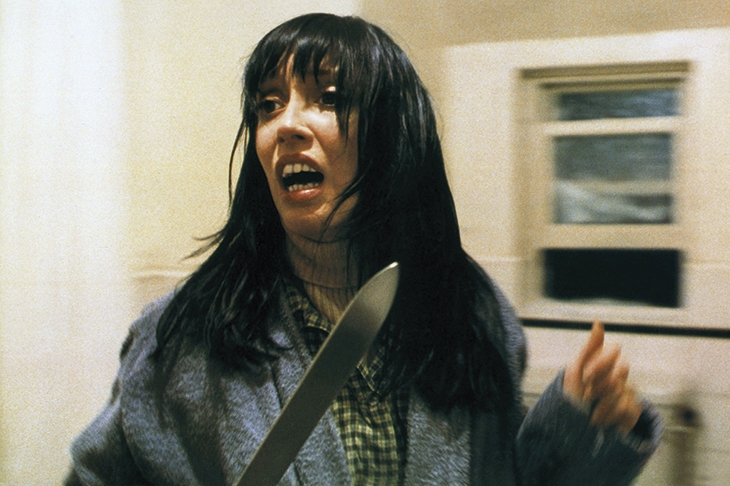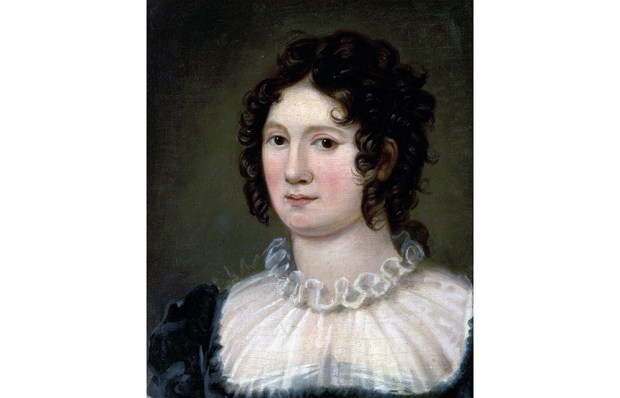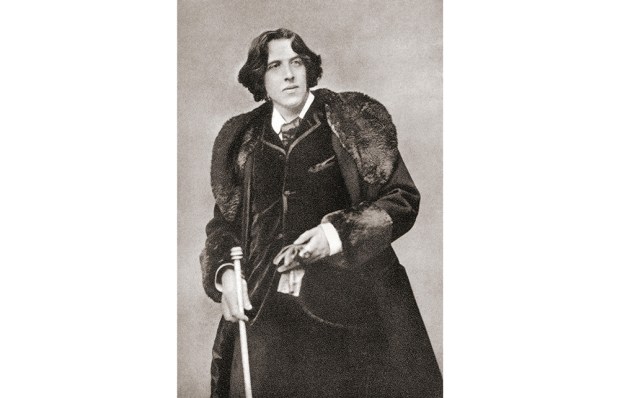Twenty-five years after making Spartacus, a parable of Roman decadence and rebellious slaves shot in California, Stanley Kubrick made Full Metal Jacket, a ’Nam flick shot in Beckton. Ever the perfectionist, Kubrick had imported palm trees from Africa, the better that the local gas works resemble downtown Hué.
Alas, he wasn’t happy. Something about the clouds over east London wasn’t right, and as for the sunsets… Meanwhile, the crew and cast and hordes of extras thumb-twiddled in the silence Kubrick demanded. Then an extra kicked up: ‘Get him off the crane.’ An assistant was despatched to find the guilty party. ‘You’re working with Stanley Kubrick,’ he lectured the rhubarbers. ‘No talking.’ Came another cry: ‘Get off the fucking crane.’ ‘OK,’ rasped Kubrick, ‘who fucking talked?’ Silence. And then, from somewhere in the crowd, a noble voice: ‘I am Spartacus.’ Then another. And another. ‘Three hundred extras burst out laughing,’ Vincent D’Onofrio tells David Mikics. ‘Stanley too.’
Hmmm. D’Onofrio was there and I wasn’t, but nothing in Mikics’s overly worshipful Kubrick biography convinces me his man saw the funny side of anything. True, Kubrick adored that great American sitcom Roseanne. But he seems to have taken its familial snark and snipe for real. Introduced to his stepdaughter’s boyfriend he turned to the girl and said: ‘You’re kidding, right?’ As Malcolm McDowell, the star of Kubrick’s wilfully grim A Clockwork Orange, said: ‘His humour’s black as charcoal. I wonder about his… humanity.’
Me too, even though Mikics assures us Kubrick was born into a loving, comfortably off New York Jewish family in 1928. Smart and cocksure, young Stanley didn’t so much skip school as simply refuse to go. Despite such recalcitrance, the lad lacked for nothing. For his 12th birthday, he was given a camera — a Graflex Pacemaker just like the one his hero, the crime photographer Weegee, used. Within a couple of years Kubrick was selling pictures to the ‘gritty and pessimistic’ Look magazine. By 17 he was working there full time.
Some of his shots are reproduced in Mikics’s book. They show that Kubrick’s eye for clever compositions — left balances right, background speaks to foreground — was there from the off. But perhaps because it came so easily to him, Kubrick soon tired of snapping. As a kid he’d dreamed of writing. Now that he knew how easy photography was, he began to fancy himself a director. With the aid of Pudovkin’s Film Technique he set about teaching himself movie making. By the mid-1950s he’d had two minor hits: Killer’s Kiss and The Killing — noir knock-offs that made up for confusing chronology with punchy monochrome imagery. For my money (though not for Mikics’s), Kubrick never did anything better.
Like Orson Welles and Alfred Hitchcock, Kubrick was adamant that film was an art, and that directors might therefore be artists. Like Welles (though unlike Hitchcock), Kubrick believed that to be an artist was to be free of all constraints. Huh? Artistic freedom was a tall order for a Shakespeare or Mozart. In money-mad Hollywood it’s pie in the sky. But after Spartacus — for which he’d been hired by its martinet star Kirk Douglas — Kubrick upped sticks to Hertfordshire, vowing never to take another order.
The results of this cultural isolationism were mixed. The sci-fi humdinger 2001: A Space Odyssey, a movie, Kubrick modestly claimed, that ‘postulates… a scientific definition of God’, is allegorical moonshine. No picture could hope to do justice to Lolita, but Kubrick’s version is hamstrung by his empty-headed decision to shoot Nabokov’s grand American tour in the Home Counties. And for all James Mason’s clenched agony as Humbert Humbert, the picture is driven off the road by Peter Sellers’s shameless mugging. Talking of whom, Dr Strangelove fancies itself an anti-nukes satire (Terry Southern helped with the script), but all piss and vinegar is siphoned off by Sellers’s ceaseless Gooning.
In fact, all that unifies Kubrick’s essentially disparate oeuvre is his cack-handed way with actors. ‘I might not know what I want,’ Kubrick used to say, ‘but I know what I don’t want.’ Now, actors usually like working with uncertain directors. It gives them the chance to show what they can do. But Mikics quotes numerous dread memories of scenes being done over and over — with no indication from Kubrick as to what had been wrong with the previous take. Given his monstrous bullying of her on The Shining shoot, Shelley Duvall has every right to kid herself she learned more from Kubrick than she did from her seven movies with Robert Altman. David Mikics has no such right. But like Tom Cruise in Kubrick’s swansong, he keeps his eyes wide shut.
Got something to add? Join the discussion and comment below.
Get 10 issues for just $10
Subscribe to The Spectator Australia today for the next 10 magazine issues, plus full online access, for just $10.
You might disagree with half of it, but you’ll enjoy reading all of it. Try your first month for free, then just $2 a week for the remainder of your first year.














Comments
Don't miss out
Join the conversation with other Spectator Australia readers. Subscribe to leave a comment.
SUBSCRIBEAlready a subscriber? Log in